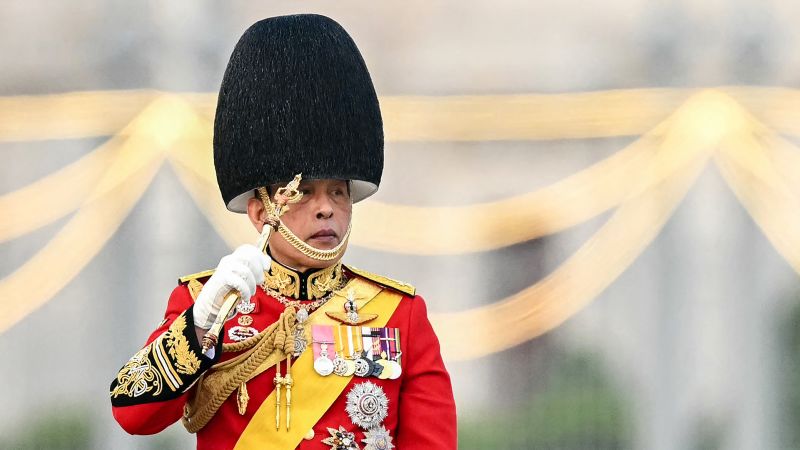American academic faces years in jail after charged with insulting Thai monarchy

American Academic Arrested in Thailand Under Lese Majeste Law
Arrest Sparks International Concern
The arrest of Paul Chambers, a respected American academic specializing in Thai politics and military affairs, has sent shockwaves through the international community. Chambers, a lecturer at Naresuan University, was detained in Thailand after being charged under the country's stringent lese majeste law, which prohibits criticism of the monarchy.
The US State Department expressed alarm over the arrest and pledged to closely monitor the situation and advocate for Chambers' fair treatment. They are providing consular assistance and have requested access to him.
Controversy Surrounding the Charges
The charges stem from a blurb on the Institute of Southeast Asian Studies (ISEAS) website related to a webinar about military reshuffles. Chambers' legal team insists he neither wrote nor published the content. He faces a potential 15-year prison sentence for each lese majeste offense, as well as charges under the Computer Crimes Act. He has been denied bail and his work visa has been revoked.
"He was accused of publishing a blurb... in connection with an ISEAS webinar... about military reshuffles," said Akarachai Chaimaneekarakate, a member of Chambers' legal team. "He denied all charges."
A Threat to Academic Freedom
Advocates argue that Chambers' arrest represents a chilling effect on academic freedom in Thailand. His work, focusing on the complex relationship between the civilian and military spheres, is highly regarded in academic circles. This case highlights the increasing risks faced by scholars and researchers examining sensitive political topics in the kingdom.
“Unlike other lese majeste cases, this case involves an extremely well-established academic... whose expertise is widely acknowledged within the academic community,” Akarachai explained.
Lese Majeste: A Tool of Suppression?
Thailand's lese majeste laws are among the harshest in the world. Critics contend that these laws, along with sedition and computer crimes statutes, are routinely employed to stifle dissent and suppress opposition to the conservative, military-influenced establishment. The military has a long history of intervention in Thai politics, having staged numerous coups since the end of absolute monarchy.
Sunai Phasuk, senior Thailand researcher for Human Rights Watch, described the charges as a “tightening chokehold on free speech and academic freedom in Thailand.”
A Rare Case Involving a Foreign National
While lese majeste cases involving foreign nationals are uncommon, this is not the first instance. In 2011, Thai-born American Joe W. Gordon was sentenced to prison for posting a link to a banned biography of the late King Bhumibol Adulyadej, though he later received a royal pardon.
Impact and Implications
Some analysts believe that the high profile of Chambers' case may bring unwanted international attention to Thailand, potentially backfiring on the military. The case also underscores the ongoing debate surrounding a proposed amnesty bill and whether it will encompass lese majeste offenses.
"The cost to the Thai military is high because it will attract the kind of international attention and scrutiny the army wants to avoid," noted political scientist Thitinan Pongsudhirak. He added, "This case tightens the lid on academic freedom... and will undermine the intellectual and research ecosystem necessary to foster ideas and innovation to propel the Thai economy forward.”